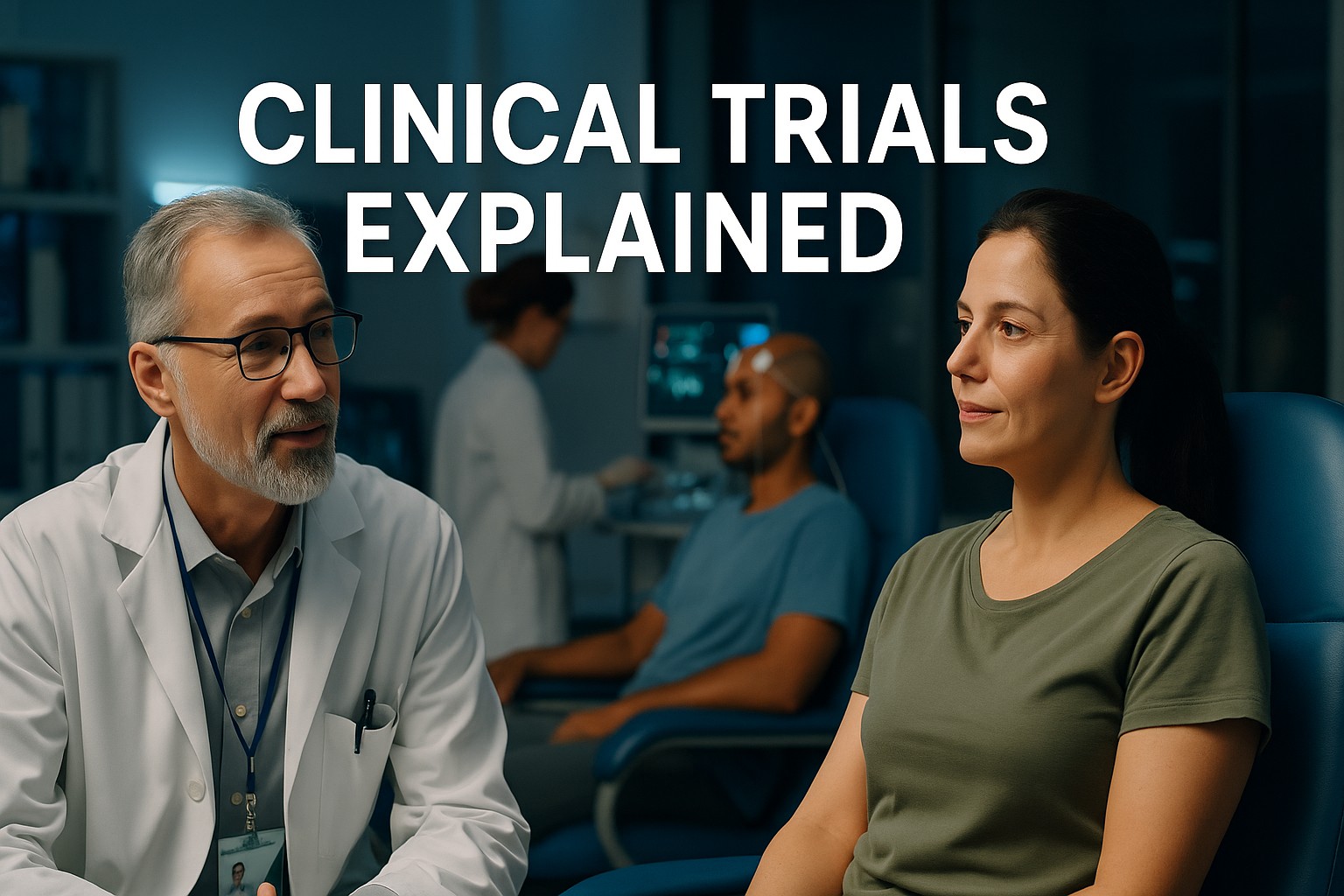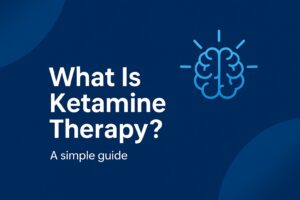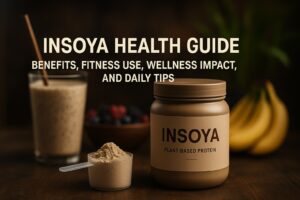New medicines do not go straight to the public. They must pass tests first. These tests are called clinical trials. They play a big role in modern health care. Many people know the term but do not fully understand it. Some feel unsure. Others think it sounds unsafe.
A clinical trial checks if a drug or treatment is safe. It also tests if it works. Doctors use trial results to see what helps and what does not. This process protects patients. It also leads to better treatment options.
Each year, people from all walks of life take part in trials. Some want to help medical research. Some need care that current drugs do not offer. Others join because they trust science to bring new hope.
This guide breaks down clinical trials in simple terms. It explains each step, the different types, and the rules that protect volunteers. You will also see how to join a trial safely and what to expect during the process.
What Is a Clinical Trial?
A clinical trial tests new ways to improve health. It may study a drug, a device, or a medical method. Real people take part in the process. Some trials aim to stop illness. Others check how to find or treat a condition.
Each trial asks one clear question. Does the new drug lower pain? Is the vaccine safe for young children? Can a new method cause fewer side effects?
Researchers collect facts during the study. They compare people who receive the treatment to those who do not. This shows if the new method works well. It also helps find risks or problems early.
Why Clinical Trials Matter
Clinical trials protect people from unsafe treatments. They check if new drugs or methods work before doctors use them. Trials help doctors follow facts, not guesses. Without trials, care could fail or cause serious harm.
These studies push medicine forward. Many cancer drugs, vaccines, and new tools came from trials. Every major health advance started with research.
Trials also give hope. People who join may try new care before it becomes public. Their role can help others with the same illness. Each trial adds value to future treatment.
Who Can Join a Trial?
Not all people can take part in every trial. Each study sets clear rules. These rules help choose the right group. They are called inclusion and exclusion criteria.
Some trials need people of a certain age. Others want people with a specific illness. Some look for healthy volunteers. People with other health problems may not qualify. This keeps the study safe and fair.
Before the trial starts, each person gets full details. This step is called informed consent. It explains the purpose, risks, time needed, and how private data stays safe. No one joins unless they agree.
Elevate Your Health Routine: Non-Medical Wellness Aids You Can Trust
Phases in a Clinical Trial
Clinical trials run in steps. Each step is a phase. These phases check if a treatment works and stays safe.
Phase One
A small group takes the drug. Doctors check safety first. They watch how the body reacts. They also look for side effects and learn how the drug moves in the body.
Phase Two
More people join this phase. Doctors check if the drug helps. They also look at safety again. They may change the dose to improve results.
Phase Three
This phase includes many people. The drug is tested against standard care. Doctors want strong proof that it works. If the results are good, the maker may ask for approval.
Phase Four
This phase begins after approval. The drug goes to the public. Doctors still check results. They watch for rare side effects and long-term risks.
Roles of Different Clinical Trials
Clinical trials do not all study the same thing. Each type answers a clear need in health care. Some trials test new ways to treat illness. These may use pills, surgery, or new tools. The goal is to see if they work better than current methods.
Other trials study how to stop illness before it starts. These focus on people who face higher risks. They help doctors learn what can prevent disease.
Some trials aim to find health problems early. These are called screening trials. They check if doctors can catch signs before the illness gets worse.
Diagnostic trials do something different. They test which tools work best to find disease. These studies compare tests to see which one gives the right result more often.
Some trials study how to make life easier. These focus on people with long-term health issues. They look at ways to ease pain, improve rest, or support daily life.
Each trial helps doctors care for patients in a smarter and safer way.
Are Clinical Trials Safe?
Yes, they follow strict rules. Government agencies and ethics groups check each trial before it starts. They look at safety, risks, and plans.
Once a trial begins, a team of doctors and experts watch closely. They can stop the trial if risks grow too high. They also check for clear results, both good and bad.
Each participant has rights. You can ask questions. You can leave the trial at any time. You must agree before anything happens.
Still, no trial is without risk. You may get side effects. You may not see results. The drug may not help you. That is why informed consent matters.
What to Expect as a Volunteer
If you join a trial, you will meet with the research team. They will explain the full plan. You will sign a consent form if you choose to join.
Next, they may run tests to see if you meet the trial’s needs. If you pass, the treatment starts. You may visit the clinic often. You may take pills or get shots. The team may ask questions, take blood, or do scans.
They track your health and write down what happens. Some trials pay volunteers. Others offer free care or travel support.
Pros and Cons of Joining
Benefits:
- You may get new treatments early.
- You help others in the future.
- You receive close medical care.
Risks:
- The treatment may not help.
- Side effects can occur.
- The trial may need your time and travel.
Weigh these facts before you join. Talk with your doctor. Ask questions. Read the consent form fully.
Where to Find a Safe Clinical Trial
Only join a trial if the source is trusted. Some websites post false studies. Others skip safety checks that protect people.
Use trusted places. Start with ClinicalTrials.gov. It is the official site for U.S. trials. You can also look at large hospitals or known medical schools. Nonprofit health groups often run approved studies too.
Ask clear questions before you join. Make sure the trial has legal approval. Learn who leads the study. Ask what rules they follow. Your safety must come first in any trial.
What Happens After the Trial?
After a trial ends, researchers study the data. They compare results and write reports. Good results may lead to approval. Bad results may stop the drug.
Sometimes, a drug works well but needs more study. In some cases, long-term trials continue to track results.
Your role ends after the trial unless asked to return. The team may tell you the results later if allowed.
Common Myths About Clinical Trials
Myth 1: Trials use people as test subjects without care.
Truth: Trials follow strict safety steps. Your rights come first.
Myth 2: Only sick people can join.
Truth: Some trials need healthy people too.
Myth 3: You get real treatment for sure.
Truth: Some trials use a placebo group. You may not get the new drug.
Myth 4: Trials always pay well.
Truth: Some offer no money. The focus is research, not reward.
Final Thoughts
Clinical trials help shape better health care. They guide doctors to learn more, treat smarter, and keep people safe. Each trial asks a clear question and finds real answers. Without trials, new treatments would never reach the public.
Joining a trial is a big choice. It may help others and offer new care. It also brings some risk. That is why trust, safety, and full consent must come first.
This guide showed how trials work, who can take part, and what steps keep you safe. If you or someone close wants to join, talk to a doctor first. Use trusted sites. Read the full plan before you agree.
You may not cure the world alone. Still, your part in a trial could change many lives. Science moves forward because people like you say yes to helping.
This content is meant for general information and should not be used as a substitute for medical advice, diagnosis, or care from a licensed health professional.
Some people also explore ways to support daily health outside of trials. Read our guide on the Dr Lipman Gut Health Morning Routine to learn more.




